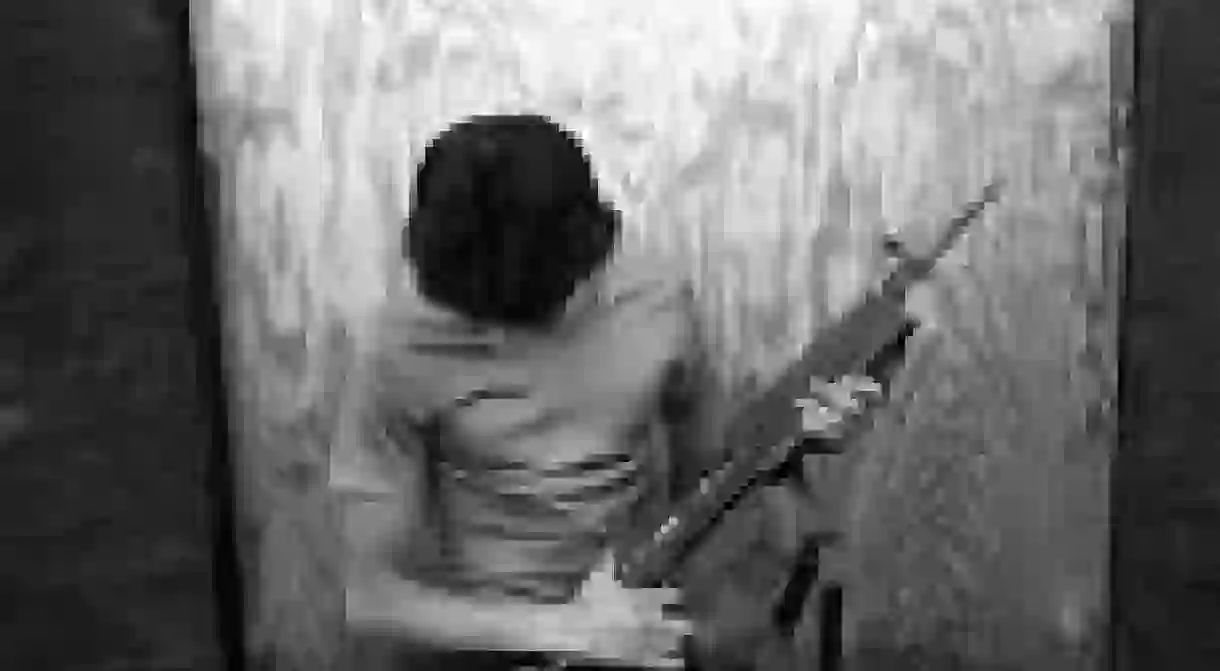Photographer Stephen Shames: Finding Home In The Bronx

When Stephen Shames first visited the Bronx on an assignment for Look Magazine in 1977, the American photographer did not expect the experience to spiral into a 22-year project. Attracted to the resilience and vitality of the people he met in the Bronx, Shames embarked on a journey into the emotional reality of daily life for young men in this complex and often brutal, community. Bronx Boys, the monograph that emerged, is part documentary and part coming-of-age story, exploring love, chaos and manhood in the Bronx.

From his forceful photographs of the Black Panthers to the advertising campaign NYC Dads, Stephen Shames has sought to use photography as a medium for social change. With 30 percent of the population living below the poverty line, the Bronx is one of New York’s toughest boroughs. However, despite the deep social injustices Shames witnessed as he immersed himself in a community threatened by drugs, violence and poverty, Bronx Boys is not just a documentary or political project, it is a deeply personal one.
Shames’ gaze is honest but sympathetic as we encounter the men he met as children. Visiting his subjects for over 20 years—with trips lasting up to several weeks—the young men became his friends and family.

Describing the first shot he caught in the Bronx and the title photograph of the series Ralph Jumps, Shames said of his approach, ‘As a photographer, you have to go with it, trust the people you are with, know that they know their world better than you do.’ Refusing to impose an artificial order on the scenes he witnessed, Shames presents life as he saw it lived. As a result, there is no clear narrative to the collection.
Shot in black and white, his photographs immortalize young men without romanticizing their world. Shames’ images features themes of play, violence, chaos, community and love. Ralph Jumps opens the collection with a wild sense of adventure as a dramatic drop opens beneath a young child leaping between rooftops, creating an atmosphere of confidence and danger. Teetering on the threshold of youth and manhood, members of a local crew exude bravado as they pose in personalized tee-shirts and two young kids, armed with a baseball bat, playfully fight with a pair of older boys.
Shames captures life in both public and private spaces, whether it’s a child pinching his first joint, a family gathered around a cake, or a couple lying in bed exchanging a kiss. He does not hide the dark reality of life for his friends and subjects. In the series, a picture pointed down the barrel of a gun is followed by an image of a family crying in black, a woman’s distraught face in full focus.
Essays by two of the ‘Bronx Boys’, Martin Dones and Jose ‘Poncho’ Munoz Luiz, anchor the collection of images in concrete memories. Unlike many of the boys and men Shames photographed over those 20 years, Dones and Luiz are still alive today. Shaped by tough choices and mistakes, their stories add a new dimension to the pictures, inviting the viewer to wonder which of the women became Dones’ wronged and battered lover, or how many of the other faces survive today. Their stories are examples of the tensions that shape individual lives, caught between good and bad, pain and joy, disappointment and the chance to start life anew.
The power of these photographs lies in Shames’ relationship with his subjects. In the words of Munoz, ‘Steve got the confidence of the whole neighbourhood’. With no wider intention than ‘just taking photos,’ Shames became a crucial, and constant feature in the chaotic lives of his subjects and even at times, a father figure. Rather than observing their lives from a journalistic distance, he stepped into their world and ‘found a home in The Bronx’.
Shames believes that the process of creating these images has had a bigger effect on individual lives than the publication of the monograph ever will. Since he always shares copies of his photographs with his subjects, his work has provided them with material evidence of their memories. Beyond this, the project has a deeper emotional and social resonance. For Shames, photography can bestow dignity on subjects society despises, focusing attention on the people the world neglects. In his own words, ‘the act of photographing, taking an interest in someone’s life—especially if society does not care a hoot about them—can have an enormous, positive impact on someone’. Bronx Boys is a powerful portrait of a place as shaped by its inhabitants, a story told from within.
Bronx Boys is available to buy here.













